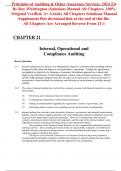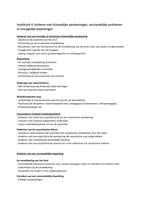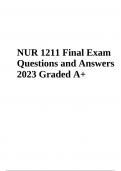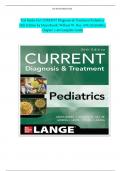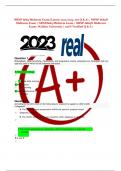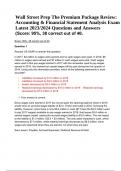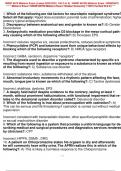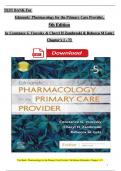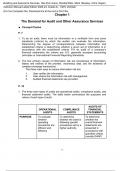Exam (elaborations)
Solutions Manual For Principles of Auditing & Other Assurance Services (2024) 23rd Edition By Ray Whittington (All Chapters, 100% Original Verified, A+ Grade)
- Course
- Institution
This Is The Original 23rd Edition Of The Solution Manual From The Original Author All Other Files In The Market Are Fake/Old Editions. Other Sellers Have Changed The Old Edition Number To The New But The Solution Manual Is An Old Edition. Solutions Manual For Principles of Auditing & Other Assu...
[Show more]
